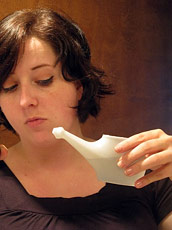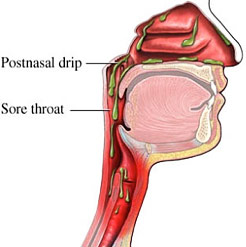- Question: How do the ingredients in e-cigarettes and vaporizers affect respiratory health? - August 16, 2019
- Bad Technique and Vocal Injury - January 9, 2019
- Is Edible Marijuana Dangerous for the Voice? Myths Dispelled - December 18, 2018
- Surprise! You have a hemorrhage - January 31, 2018
- Graves’ Disease: Treatment Overview - September 25, 2017
- Adele and the Stigma of Vocal Injury - July 11, 2017
- Vocal Curbside Consult: How does the thyroid affect the voice? - May 16, 2017
- Vocal Curbside Consult: How do hormones affect the voice? - May 3, 2017
- Vocal Curbside Consult: How do emotion and stress affect the voice? - April 17, 2017
- Vocal Curbside Consult: Vocal Recovery After Illness - April 7, 2017
 One of the reasons I love lecturing groups of performers so much is that it keeps me in touch with issues that are of concern to them. Though I regularly see singers in my practice as a laryngologist, I find I usually can’t predict what singers worry about. For example, when I discussed vocal anatomy with a young group of male singers, I was surprised how many of them were terrified and fascinated by the concept of a vocal hemorrhage.
One of the reasons I love lecturing groups of performers so much is that it keeps me in touch with issues that are of concern to them. Though I regularly see singers in my practice as a laryngologist, I find I usually can’t predict what singers worry about. For example, when I discussed vocal anatomy with a young group of male singers, I was surprised how many of them were terrified and fascinated by the concept of a vocal hemorrhage.
When I was invited by The Grammys MusiCares organization to discuss vocal anatomy and vocal injury prevention, I gladly accepted. I enjoy teaching singers what I know about their instruments because I believe that this education will help them to prevent injury. Prevention is the most important way to care for the voice, far better than anything we can do in the medical community to repair.
I was really surprised when, in the middle of discussing what I thought would concern them (how the voice works, voice videos, what damage looks like), we ended up in a discussion about nasal irrigation! This one topic generated more questions than anything else had and it reminded me again how important it is to listen to your singers and hear their concerns.
 What is nasal irrigation?
What is nasal irrigation?
Nasal irrigation is the process of using a liquid (usually salt water) to rinse out the inside of the nose. Though it is often called a “sinus rinse” a very small amount of the irrigated fluid gets into the sinuses. The most important part of nasal irrigation is to wash away everything that is inhaled and might cause irritation.
Why is nasal irrigation helpful?
Nasal breathing is very important because the nose is able to filter out many contaminants from the air that, if they get to the lungs, can cause irritation and infection. However, this means that the nose filters out and retains all those particles.
Nasal irrigation washes away all these irritants so that the nose does not react to them.
What can those particles do if they are not washed away?
Allergens, air contaminants and viruses will cause swelling of the nasal lining if they are not rinsed away. This can cause many symptoms including:
- Nasal congestion
- Ear popping
- Post nasal drip and throat clearing
- Recurrent nasal infection
- Runny nose
- Hoarseness (from postnasal drip)
How does nasal irrigation help singers?
 When singers inhale particles that are irritating (including air pollutants, allergens, etc) this causes mucous to form in the nose. The mucous drips down the back of the throat and onto the vocal cords. When it lands there, several things happen:
When singers inhale particles that are irritating (including air pollutants, allergens, etc) this causes mucous to form in the nose. The mucous drips down the back of the throat and onto the vocal cords. When it lands there, several things happen:
- Vocal cord swelling (decreased vocal pitch)
- Pitch instability (difficulty hitting a note consistently)
- Throat clearing (which worsens vocal cord swelling)
- Voice breaks
Irrigation washes away the particles before the nose can make mucous and may avoid the above symptoms completely. It may also therefore help to avoid the need for medication to control postnasal drip. Avoiding medication is always preferred, especially in singers where side effects of medications (such as drying) may be detrimental to the voice.
Of course the best way to know if you would benefit from nasal irrigation is to see a doctor. There are risks to using nasal irrigation and it is not right for everyone. A simple evaluation by an ear, nose and throat physician (or by a laryngologist if you are a singer) will quickly help determine if nasal irrigation would help you.
Read patient stories about Dr. Reena Gupta from The Division of Voice at the Osborne Head and Neck Institute.
To learn more about the voice, click here.




